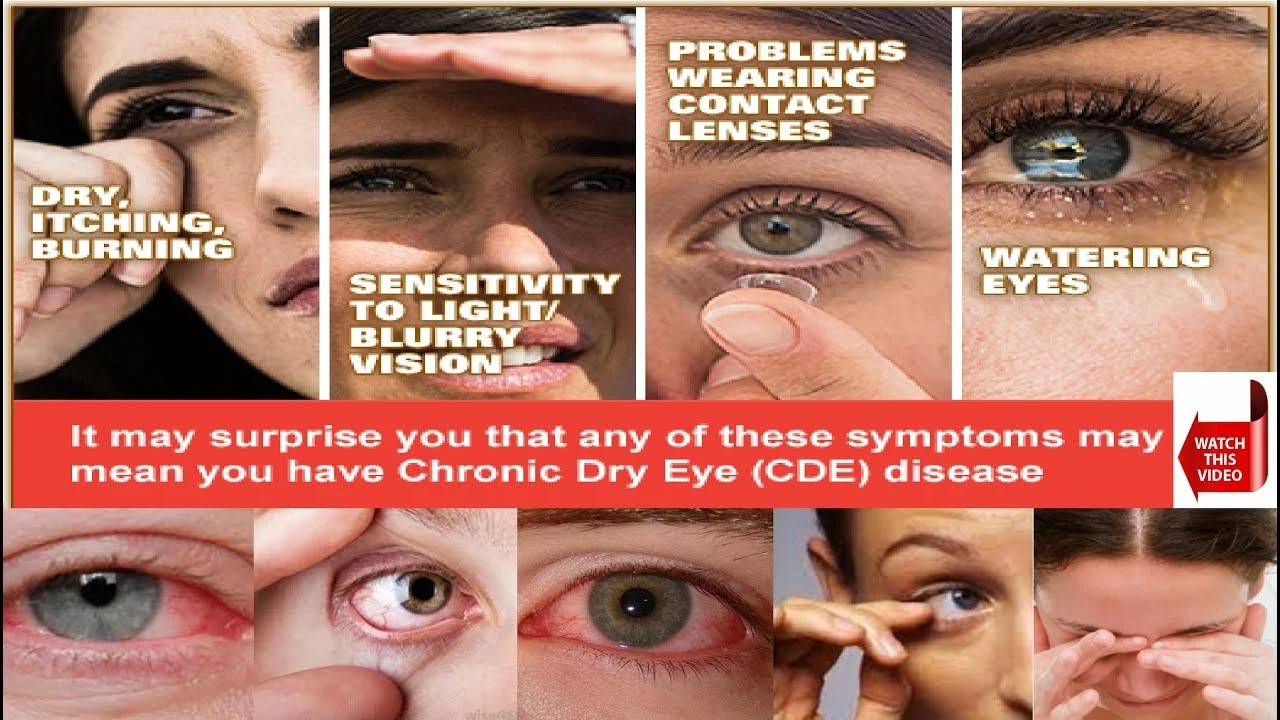Understanding Dry Eye Syndrome and Its Impact on Daily Life
Dry eye syndrome is a common condition that affects millions of people worldwide. It occurs when the tear glands in your eyes don't produce enough tears or produce poor-quality tears, leading to discomfort, irritation, and even vision problems. As someone who suffers from dry eye syndrome, I know firsthand how frustrating and debilitating it can be. In this section, we'll explore the causes and symptoms of dry eye syndrome, as well as its impact on daily life.
There are several factors that can contribute to the development of dry eye syndrome, including aging, certain medications, and environmental factors such as exposure to wind and dry air. Additionally, some medical conditions like autoimmune disorders can also increase the risk of developing dry eye syndrome. The most common symptoms include feelings of dryness, burning, itching, and a sensation of having something in the eye. These symptoms can make simple tasks like reading or driving difficult and can significantly impact a person's quality of life.
Introducing Besifloxacin: A Powerful Antibacterial Agent
Besifloxacin is a fluoroquinolone antibiotic that has been proven effective in treating a variety of bacterial infections, particularly those affecting the eyes. It works by inhibiting the growth and reproduction of bacteria, making it a powerful ally in the fight against eye infections. In this section, we'll delve into the specifics of besifloxacin, including how it works, its safety profile, and its potential benefits for those suffering from dry eye syndrome.
One of the key features of besifloxacin is its broad-spectrum antibacterial activity, which means it's effective against a wide range of bacteria, including those that can cause eye infections. This makes it an excellent choice for treating conditions like bacterial conjunctivitis, or "pink eye," as well as other infections that can contribute to dry eye syndrome. Besifloxacin has also been shown to have a low risk of causing antibiotic resistance, which is a significant concern with many other antibiotics. Additionally, studies have demonstrated that besifloxacin is safe and well-tolerated, with minimal side effects.
How Besifloxacin Can Help Alleviate Dry Eye Symptoms
Now that we have a better understanding of besifloxacin and its potential benefits, let's explore how it can help alleviate the symptoms of dry eye syndrome. In many cases, dry eye syndrome can be exacerbated by bacterial infections, which can cause inflammation and further damage to the eye's delicate tissues. By effectively treating these infections, besifloxacin can help reduce inflammation and promote healing, leading to an improvement in dry eye symptoms.
Furthermore, research has shown that besifloxacin may also have anti-inflammatory properties, which can be beneficial for those suffering from dry eye syndrome. Inflammation is a key factor in the development and progression of dry eye syndrome, so reducing inflammation is an important step in managing the condition. By addressing both the underlying infection and the associated inflammation, besifloxacin may offer a promising treatment option for those struggling with dry eye syndrome.
Real-Life Experiences with Besifloxacin and Dry Eye Syndrome
As a dry eye sufferer myself, I was thrilled to learn about the potential benefits of besifloxacin for treating my symptoms. After discussing it with my eye doctor, I decided to give it a try, and I'm happy to report that it has made a significant difference in my comfort and quality of life. In this section, I'll share my personal experience with besifloxacin, as well as the experiences of others who have found relief from dry eye syndrome with this powerful antibiotic.
Since starting treatment with besifloxacin, I've noticed a marked improvement in my dry eye symptoms. My eyes feel less irritated and more comfortable throughout the day, and I no longer dread activities like reading or driving. While my dry eye syndrome hasn't been completely cured, besifloxacin has made it much more manageable, allowing me to enjoy my daily life without constant discomfort. I've also spoken with others who have tried besifloxacin for their dry eye syndrome, and many have reported similar improvements in their symptoms.
Discussing Besifloxacin with Your Eye Care Professional
If you're struggling with dry eye syndrome and are interested in trying besifloxacin, it's essential to discuss this treatment option with your eye care professional. They can help determine if besifloxacin is appropriate for your specific situation and provide guidance on how to use it safely and effectively. In this section, we'll provide some tips on how to initiate this conversation with your eye doctor, as well as what to expect during the treatment process.
When discussing besifloxacin with your eye care professional, be sure to mention any other medications you're currently taking, as well as any medical conditions you have that could impact your eye health. This information will help your doctor determine if besifloxacin is a suitable treatment option for you. If your doctor decides to prescribe besifloxacin, they'll provide instructions on how and when to use it, as well as any potential side effects to watch for. By following your doctor's guidance and closely monitoring your symptoms, besifloxacin could be the key to finding relief from your dry eye syndrome.


Jo Sta
June 13, 2023 AT 03:32KALPESH GANVIR
June 14, 2023 AT 12:24April Barrow
June 15, 2023 AT 19:45Melody Jiang
June 16, 2023 AT 01:15alex terzarede
June 16, 2023 AT 21:51Dipali patel
June 18, 2023 AT 00:17lisa zebastian
June 19, 2023 AT 06:57